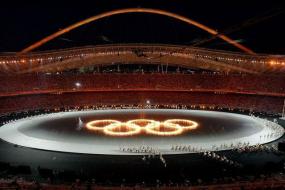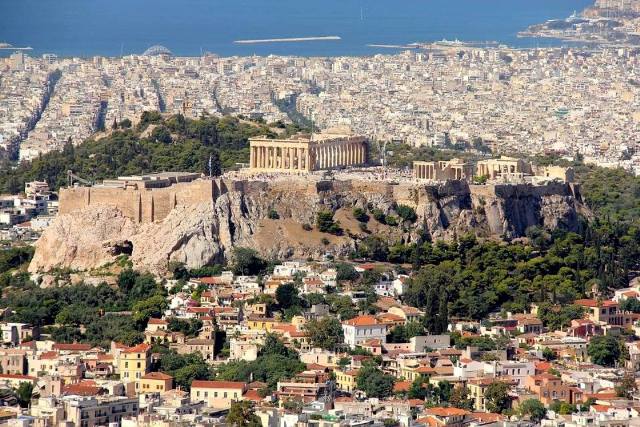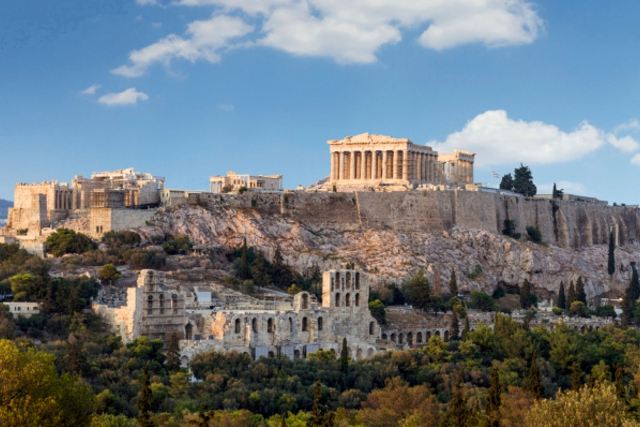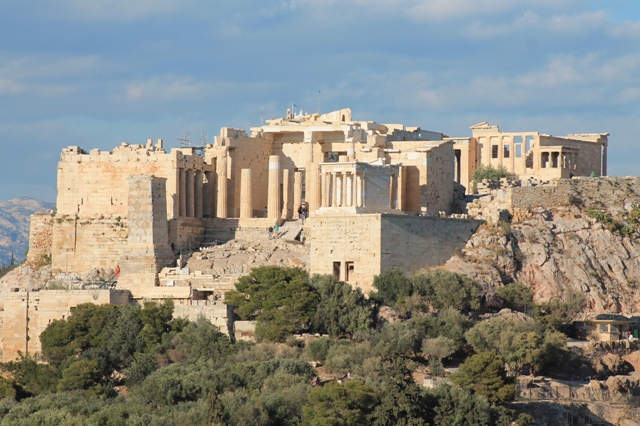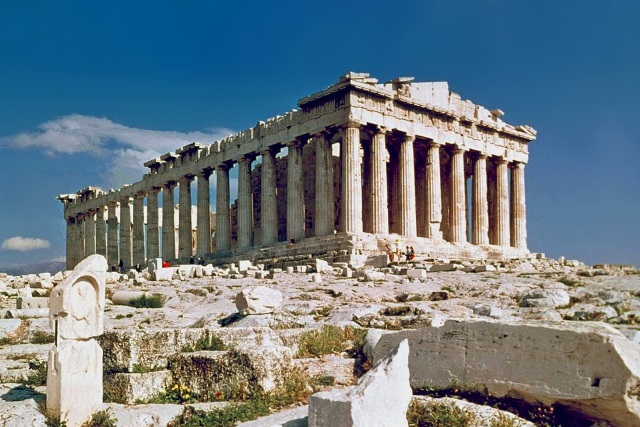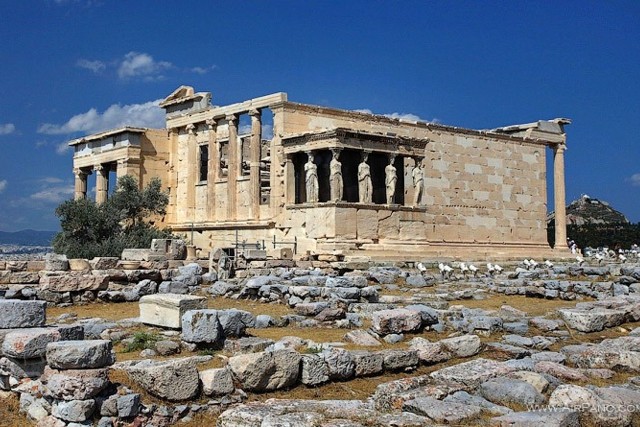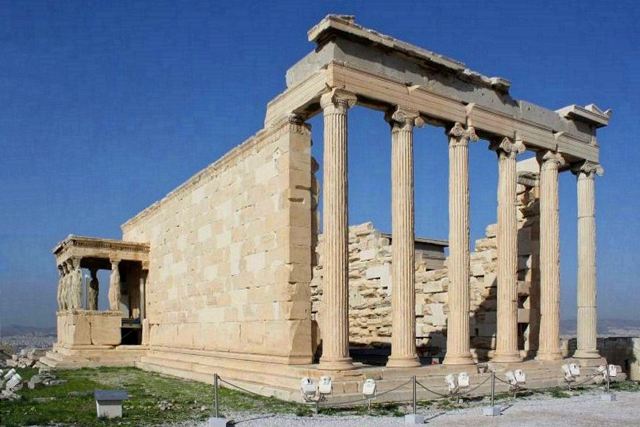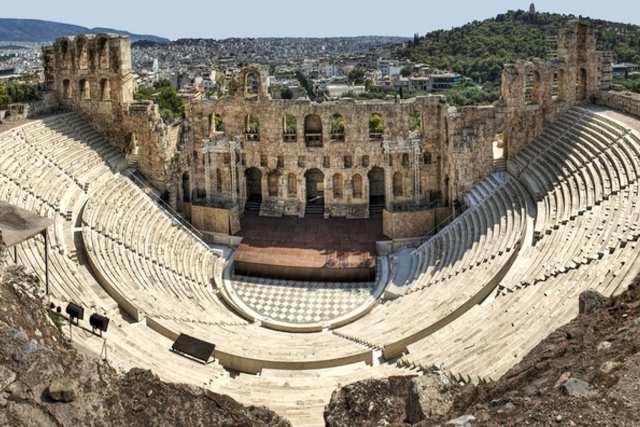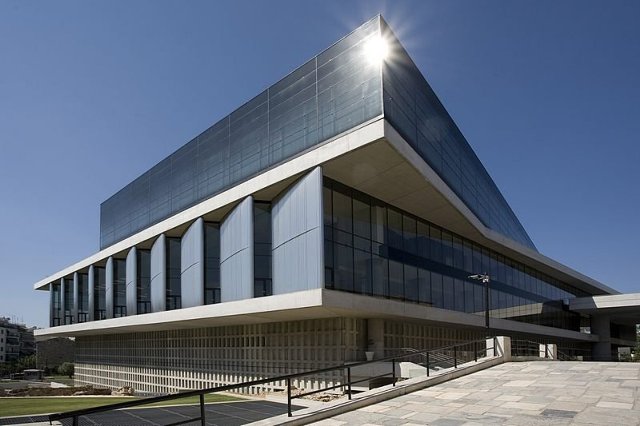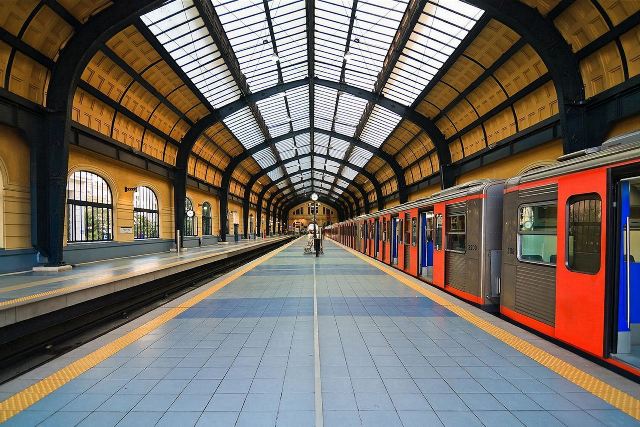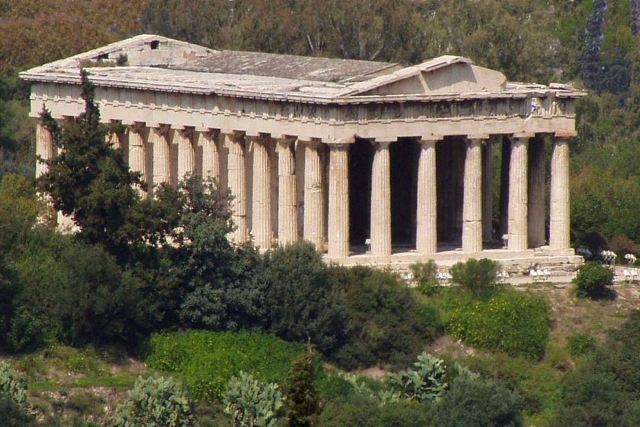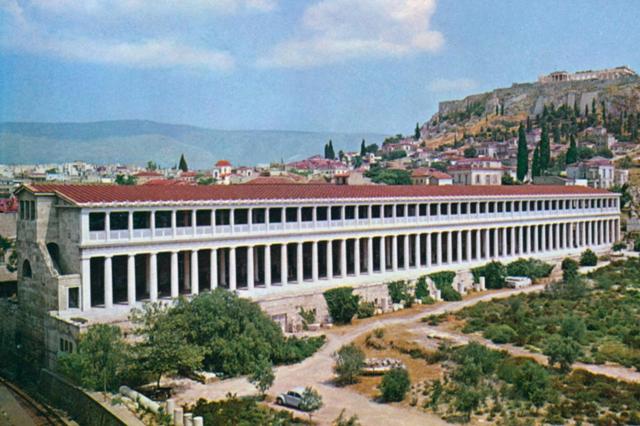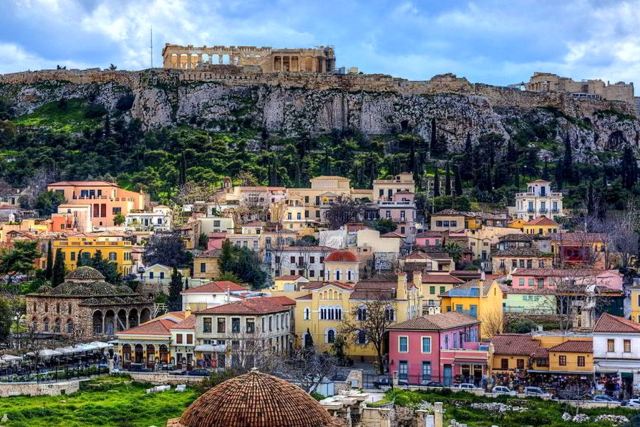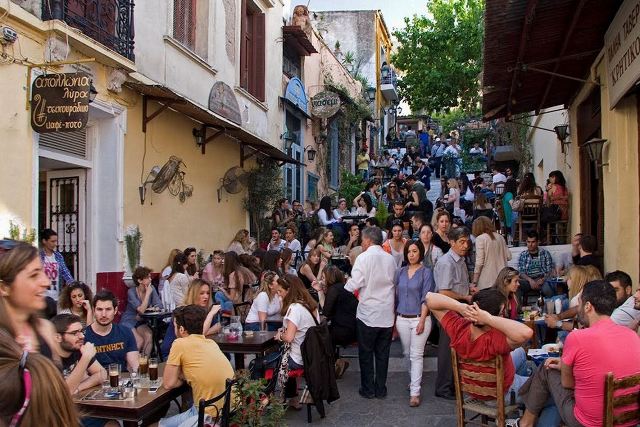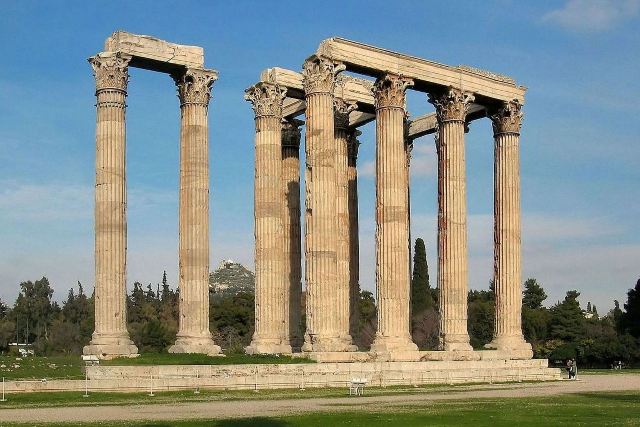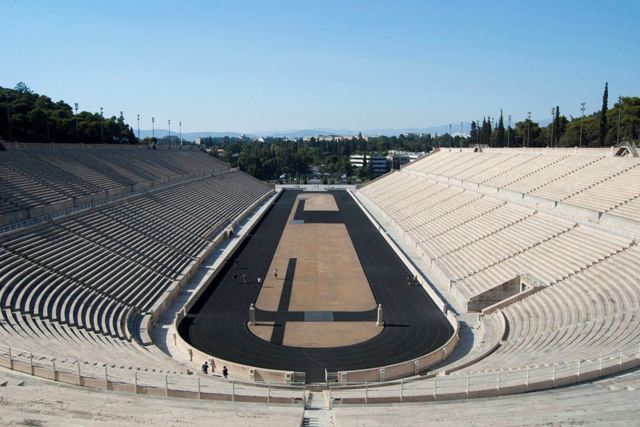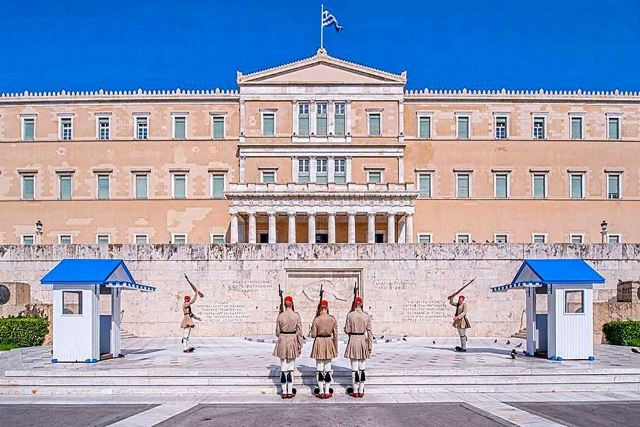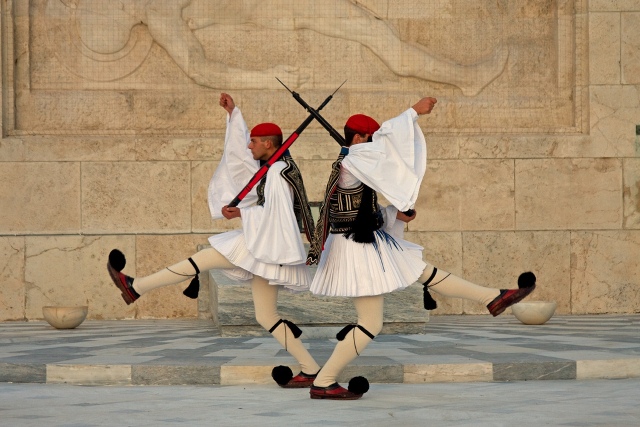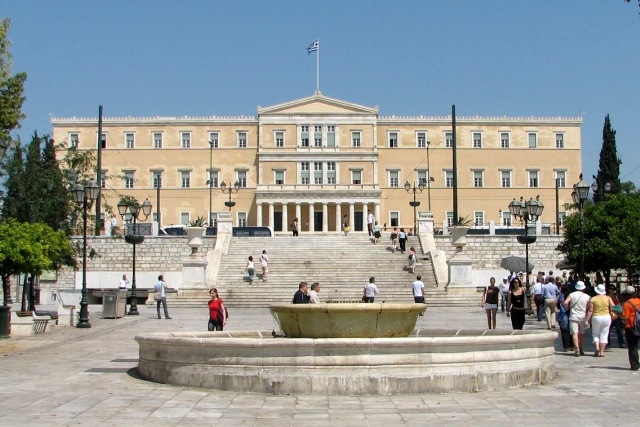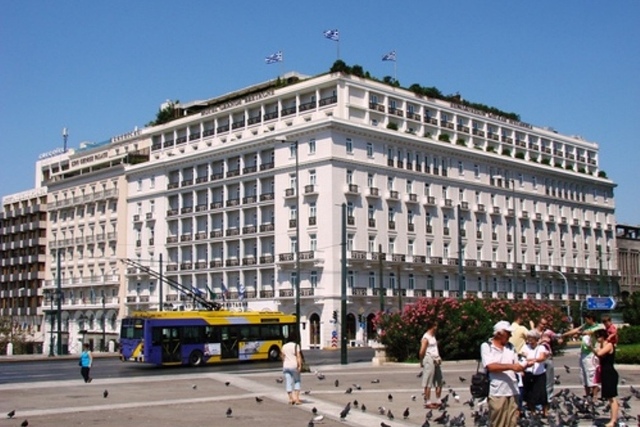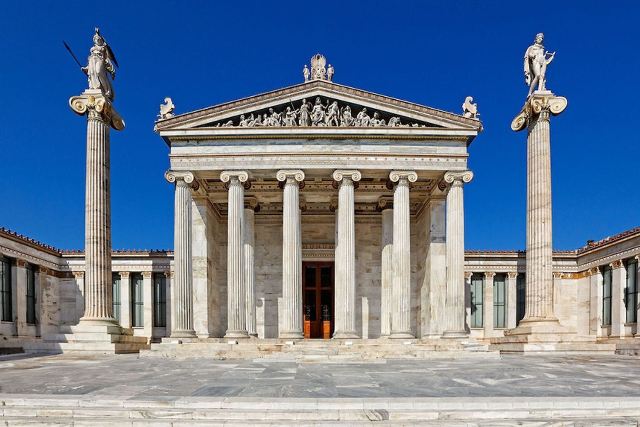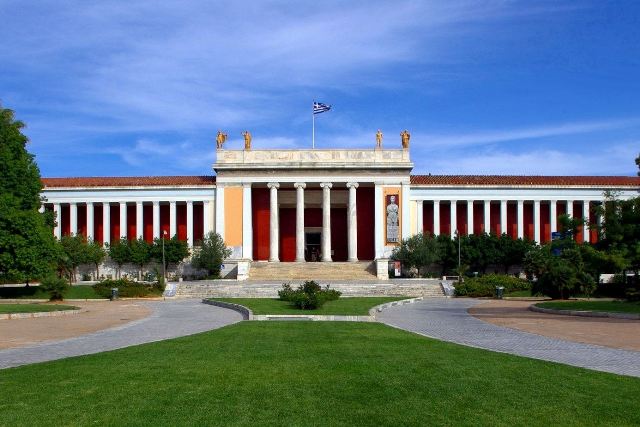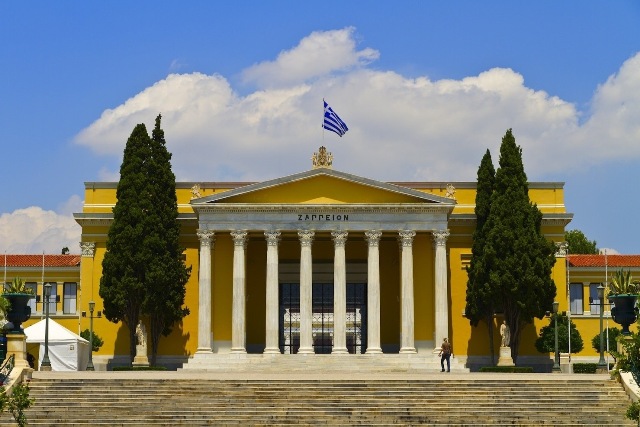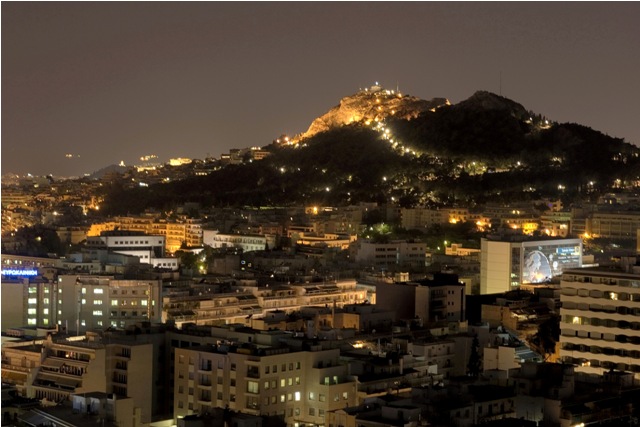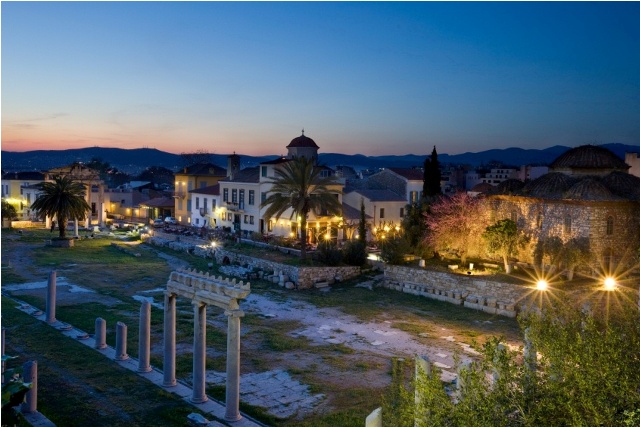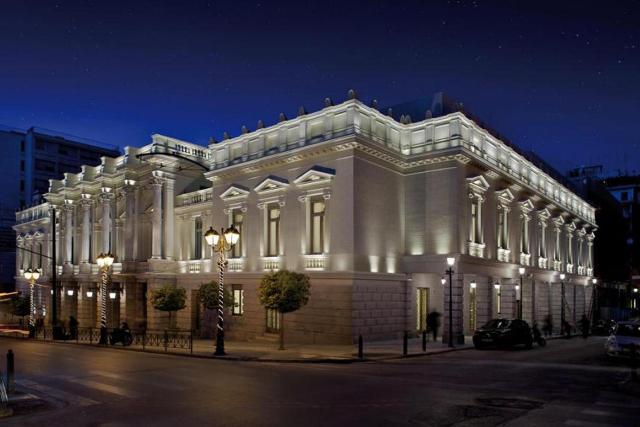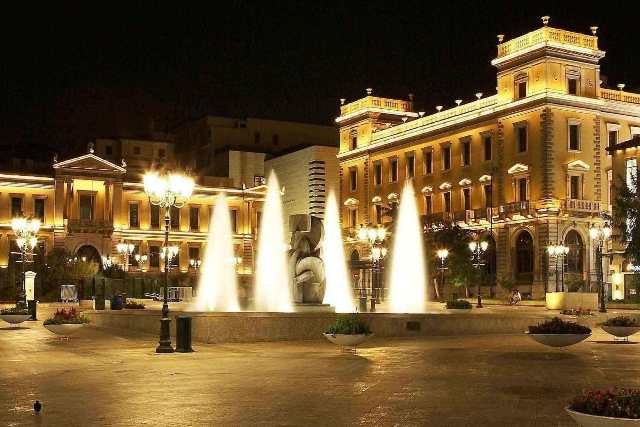Athens
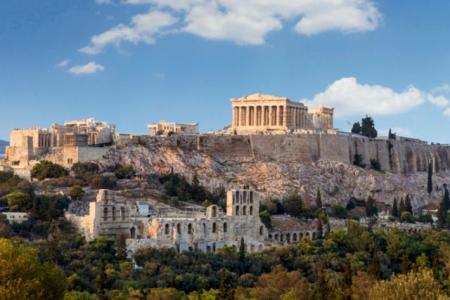 ATHENS - Distance from Ermioni: 170 kms/2.5 hours
ATHENS - Distance from Ermioni: 170 kms/2.5 hours
Athens is the capital of modern Greece, it is also the largest city in Greece, with almost half the countries population living within the Greater Athens area, including its port of Piraeus. Athens is one of the world's oldest cities, continuously inhabited for at least 7,000 years, named after the goddess of wisdom, Athena, who became the 'Patron Deiety' of the city. During the city's Golden Age in the 5th century BC, Athens had introduced democracy, promoted the arts, architecture, philosophy, science, defeated the two Persian invasions with victories at Marathon and Salamis, created an Empire, with its cultural achievements laying the foundations for Western civilization. In this period the Acropolis was reconstructed, creating the iconic Parthenon, Erechtheum and Propylaea. The Acropolis is the number one destination for today's tourists, followed by the spectacular Acropolis Museum.
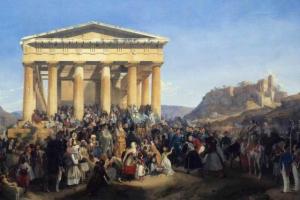 Over the years, a multitude of conquerors have occupied Athens, each erecting unique monuments, leaving a lasting legacy. In 1834, the recently elected King Othon established Athens as his capital of the newly created Kingdom of Greece, following the Greek War of Independence against the Turkish Ottoman Empire, 1821-1829. He had Athens rebuilt from a small village nestling by the Acropolis to what we see today, a modern metropolis with unrivalled charm. A large part of the city's historic centre has been converted into Europe's largest pedestrian zone, leading to all the major archaeological sites, in effect creating an Athenian archaeological park. However, ancient and medeival monuments are not all that Athens has to offer, there are numerous hotels, galleries, markets and shops that cater for everyone's taste, as well as a variety of restaurants, tavernas, popular fast-food outlets, cafes and bars.
Over the years, a multitude of conquerors have occupied Athens, each erecting unique monuments, leaving a lasting legacy. In 1834, the recently elected King Othon established Athens as his capital of the newly created Kingdom of Greece, following the Greek War of Independence against the Turkish Ottoman Empire, 1821-1829. He had Athens rebuilt from a small village nestling by the Acropolis to what we see today, a modern metropolis with unrivalled charm. A large part of the city's historic centre has been converted into Europe's largest pedestrian zone, leading to all the major archaeological sites, in effect creating an Athenian archaeological park. However, ancient and medeival monuments are not all that Athens has to offer, there are numerous hotels, galleries, markets and shops that cater for everyone's taste, as well as a variety of restaurants, tavernas, popular fast-food outlets, cafes and bars.
 Getting around Athens is very easy as well, as most of the major tourist sites are located within a triangle between the Acropolis, Syntagma Square and Omonia Square, all within walking distance. If you don't fancy walking, then there is a wonderful Metro system as well as numerous trams that will get you to where you want to be. If you are limited with your time in Athens, there are also many companies offering open-top 'site-seeing' buses that take you around all the main points of interest around the city. An all-day ticket will allow you to hop-on-hop-off these buses throughout the whole day, at places of interest that you select, spending as much time exploring as you wish.
Getting around Athens is very easy as well, as most of the major tourist sites are located within a triangle between the Acropolis, Syntagma Square and Omonia Square, all within walking distance. If you don't fancy walking, then there is a wonderful Metro system as well as numerous trams that will get you to where you want to be. If you are limited with your time in Athens, there are also many companies offering open-top 'site-seeing' buses that take you around all the main points of interest around the city. An all-day ticket will allow you to hop-on-hop-off these buses throughout the whole day, at places of interest that you select, spending as much time exploring as you wish.
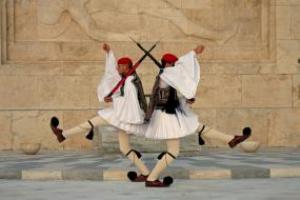 Top 12 tourist sites to visit in Athens:
Top 12 tourist sites to visit in Athens:
- The Acropolis - Parthenon - Erechtheum - Propylaea - Odeon of Herodes Atticus
- The new Acropolis Museum
- Monasteraki - Hadrians Library - Roman Agora - Tower of the Winds
- Plaka - Flea Market
- Ancient Agora - Temple of Hephaestus - Stoa of Attalos
- National Archaeological Museum
- Syntagma Square - Parliament - Tomb of the unknown warrior - Benaki Museum
- Temple of Olympian Zeus - Hadrians Arch
- Mount Lycabettus - Athens War Museum - Byzantine Museum
- National Gardens - Zappeion
- Kerameikos ancient cemetery - Pnyx Hill - Open-air street market
- The Panathenaic Stadium - Originally built in 330 BC
Athens celebrated the 2500th anniversary of the ancient battles of Thermopylae and Salamis in 2020, with major exhibitions at the National Archaeological Museum. Athens celebrated the 200th anniversary of the start of the Greek War of Independence in 2021.
Athens hosted the inaugural modern day Olympic Games. Organised by the International Olympic Committee, which had been created by Pierre de Coubertin, the Games were held in Athens from 6th to 15th April 1896. Officially known as the 'Games of the I Olympiad', they were the first International Olympic Games held in modern history, with 243 athletes from 14 countries taking part. Greece won the most medals overall, with the highlight being the victory by Spyridon Louis in the long-distance Marathon run, which finished in the Panathenaic Stadium. Winners were awarded silver medals, runners-up got copper medals, nothing for third.
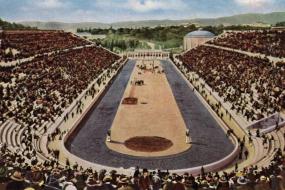
More recently, Athens hosted the very successful 2004 Summer Olympics, the 'Games of the XXVIII Olympiad', from 13th to 29th August 2004 with the motto 'Welcome Home'. Athens welcomed 10,625 athletes from 201 countries, with several World and Olympic records broken during these Games. Having previously hosted the Olympics in 1896, at the time, Athens became one of four cities to have hosted the Summer Olympic Games on two separate occasions, together with Paris, London, and Los Angeles.
A number of people visiting Ermioni spend their first day and last day in Athens, which gives them an opportunity to visit and see some of the city's wonderful monuments. Even if you just visit Athens for the day, by taking the first boat from Ermioni to Piraeus and catching the Metro from Piraeus port to Monastiraki, it puts you in the centre of Athens within two and a half hours, with plenty of time to explore. Even if the weather is bad during the winter period, there are enough museums, art galleries, shopping centres and malls to occupy your time. In reality, it would take a number of days to see all the places of interest that Athens has to offer, however, it is worth seeing just a few of these interesting historical and cultural sites to make your Greek experience complete. Whatever you may miss on your visit to Athens, it's a good reason to return.
